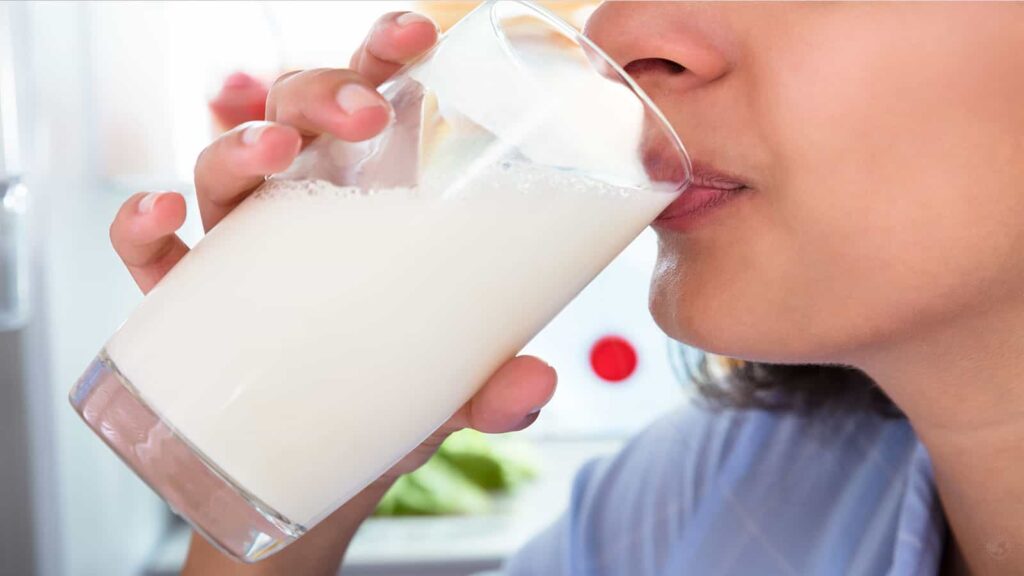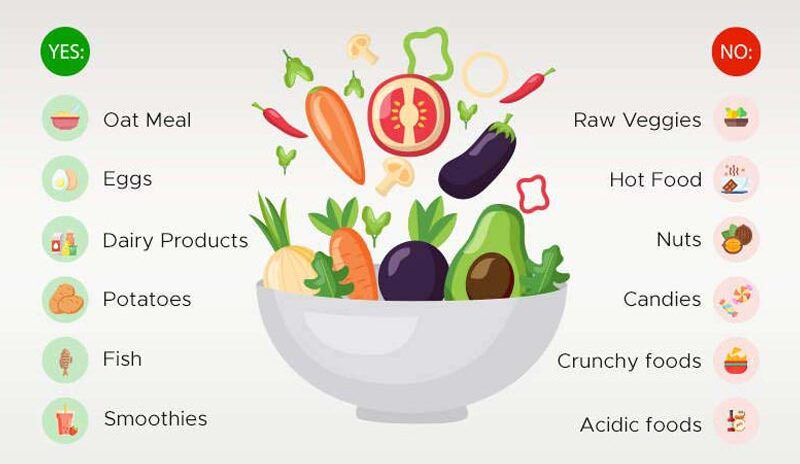
Having a dental implant is a great way to improve one’s oral health and overall quality of life. However, when recovering from a dental implant, it is important to avoid certain foods and one of them is dairy products.
If you have recently undergone a dental implant procedure, you may have been advised by your dentist or oral surgeon to avoid consuming dairy products for a certain period of time. This may seem like a strange or unnecessary restriction, but there are several reasons why avoiding dairy can be beneficial for the healing of your dental implant after your surgery.
First of all, most dairy products, especially milk, contains high amount of sugar which promotes the growth of bacteria in the mouth. This increases the risk of an infection at the implant site where the wounds are still fresh. This will delay healing and potentially cause the implant to fail if the bone and skin wound fails to recover.
Secondly, dairy products have also been known to cause nausea and vomiting among patients who have just undergone a dental surgery. This is likely due to the texture and smell of dairy which may be repulsive to these patients. Adding on, regurgitation may cause food and stomach acid to flow back to the mouth. This increased acidity in the mouth will greatly increases the risk of inflammation around the wound area.
Thirdly, consuming dairy products can interfere with the absorption of certain antibiotics, such as tetracycline. Calcium and magnesium ions in the dairy can bind to the antibiotics, forming insoluble complexes in the stomach. These insoluble complexes can prevent the antibiotics from being absorbed into the bloodstream from the gastrointestinal tract. As a result, the antibiotics may not reach the intended site of infection in adequate concentrations, reducing their effectiveness in treating the infection.
Lastly, dairy products can trigger an inflammatory response to the tissues in the surgical site, causing pain and discomfort in the implant area. This is due to the saturated fat which are found in animal products including dairy. In the event that the inflammation aggravates, it can lead to peri-implantitis, a serious case of inflammation where the hard tissue (bone) supporting the dental implant is lost. In most situations, both non-surgical and surgical treatment is required to control the inflammation and repair the damage caused by the peri-implantitis. This involves the use of mouthwashes, antibiotics, as well as mechanical debridement and bone grafting.
Avoid Dairy For at Least One Week
While there are no hard and fast rule regarding how long you should abstain from dairy after your dental implant surgery, most dentists and oral surgeons recommend that you avoid dairy products for the first one to two weeks.
This is to provide sufficient time for the wound site heal and recover. After the first week, you could slowly reintroduce dairy products into your diet as long as you do not have any complications. That said, always monitor the condition of the wound and stop consuming dairy if you feel pain or discomfort in the surgical site.
You may be interested in: Is Swishing Milk Good for Your Teeth?
Avoiding dairy will also mean not being able to eat ice cream after your dental implant. However, it is generally fine to treat yourself with ice cream the day after the surgery as long as it is not too excessive!
While you should avoid dairy during the period, it is important that you that you are still getting calcium and other nutrient in your diet. For instance, you may consult plant-based milk such as almond milk. Do consult your local dental clinic about alternative sources of calcium and other nutrients that are safe to consume after a dental implant procedure.
Other Food to Avoid After Dental Implants
Apart from dairy products, there are several other types of food that should be avoided to help ensure proper healing and to reduce the risk of complications. Some of the foods include:
- Hard or crunchy foods: Foods like nuts, popcorn, and hard candy can put unnecessary pressure on the implant and can cause it to shift or become loose.
- Chewy or sticky foods: These food can also put pressure on the implant. At the same time, it can be difficult to be removed once it is lodged in or around the implant site. Examples of these food are caramels, taffy, and gummy candy.
- Spicy or acidic foods: Foods like hot peppers, salsa, and citrus fruits can cause inflammation and pain in the implant area, and may also cause sensitivity.
- Alcohol: Consuming alcohol can affect the natural healing process of the body and cause increased risk of bleeding and swelling in the surgical site. Another reason to avoid alcohol after your surgery is to avoid combining it with medications; mixing the two can cause serious complications including nausea, drowsiness, and increased heart rate.
- Carbonated drinks: Carbonated drinks like soda can cause the release of carbon dioxide, which can cause pressure in the implant area and may cause the implant to move.
Food to Eat after Dental Implants
It is important that you follow your dentist or oral surgeon’s instructions as they will give you all the information you need to know regarding what to eat or avoid after your implant surgery. In general, one should consume a healthy and balanced diet to ensure proper healing and to promote the growth of new tissue around the implant. Here are some of the foods you should consume after a dental implant:

- Soft foods: Foods like eggs, mashed potatoes, oats, and soups are easy to chew and swallow, and they won’t put pressure on the implant. It is highly recommended that you stick to a soft food diet for at least the first 24 hours post-surgery to damaging the implant site.
- Protein-rich foods: Foods like chicken, fish, beef, and tofu can help promote the growth of new tissue and repair damaged tissue around the implant.
- Fruits and vegetables: Fruits and vegetables like berries, leafy greens, and carrots are high in vitamins and minerals that can help support the healing process. Smoothies are a great way to consume these fruits and vegetables if you are suffer from temporary jaw stiffness (trismus) after the surgery
- Calcium-rich foods: Foods like leafy greens, almonds, and fortified fruit juices can help ensure you’re getting enough calcium to support bone health and the growth of new tissue around the implant.
- Water: Drinking plenty of water can help keep the implant site clean and flush away any food particles that may get stuck around the implant.
- Probiotic-rich foods: Foods like yogurt, kefir, and sauerkraut can help promote the growth of beneficial bacteria in the mouth, which can help prevent infection and promote healing.
Concluding Thoughts
Dairy products, while rich in essential nutrients like calcium, can pose specific challenges to the sensitive surgical sites of dental implants. The risk of introducing harmful bacteria, causing irritation, or interfering with antibiotics underscores the wisdom of temporarily steering clear of dairy-based foods. As such, it is imperative that you avoid dairy products after a dental implant.
But remember, this dietary adjustment is not a permanent one. It is merely a temporary measure, a phase in your journey towards a healthier smile. Your dental professional will guide you through the recovery process and provide the green light when it’s time to reintroduce dairy into your diet






